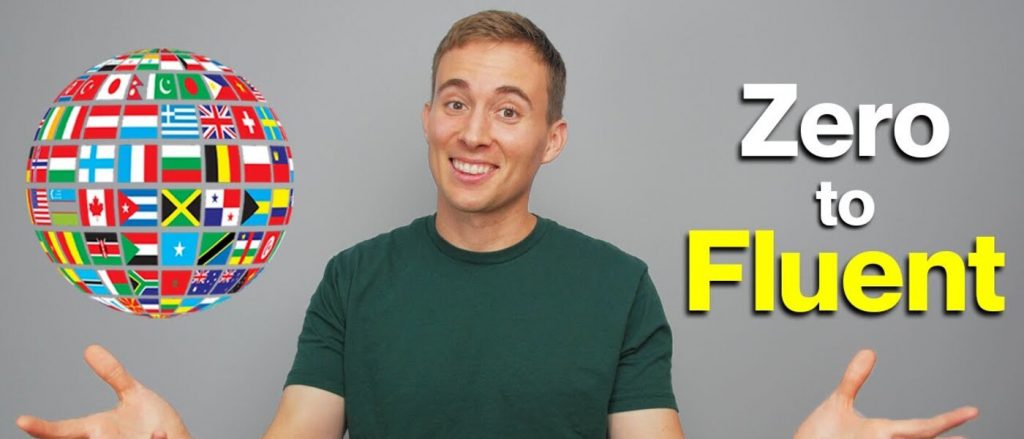Brian Wiles ’04’s Path to YouTube Stardom
With an ear for languages and an actor’s love for the camera, Brian Wiles ’04 has found a following online.
By Morgan McCordick ’19
In less than three years, Brian Wiles ’04 has amassed more than a million subscribers to his YouTube channel. Speaking in both English and Arabic, he’s earned a devoted following for engaging videos oriented around American and Egyptian culture, as well as for tutorials on how to learn a new language. Yet just a few years before Wiles launched the channel, he didn’t speak a word of Arabic.
Wiles’s road to YouTube renown was circuitous and unplanned, but it began when he caught the acting bug while at Regis. As a student, he began to take seriously the prospect of pursuing acting professionally. He was an active member of the Hearn’s speech division and a frequent performer in Regis Repertory productions.
“Acting wasn’t necessarily something I came to Regis thinking I would end up doing,” said Wiles. “But because I enjoyed it so much and because people at Regis encouraged me, I went to college thinking acting would be my major and that it would be something I wanted to pursue.”
After leaving 84th Street, Wiles — who went by the name Brian Lewis before changing his name for professional reasons — earned an MFA in acting from Yale University’s School of Drama and took roles in films and shows like Billions, Person of Interest, and Manifest. But as he established himself as an actor, a
budding side career in language was slowly taking shape, even if he didn’t realize it at first.
With some background in French — the language Wiles studied at Regis — he began teaching himself Spanish, Mandarin, and Arabic with whatever spare time he had. At first, he considered it a hobby — a way to occupy the downtime in his schedule, and perhaps something that could one day prove useful for his acting career.
Then came the COVID-19 pandemic. Across the industry, production stalled and opportunities for new roles withered. By the time the first shutdowns began, Wiles had been studying Arabic independently for about two years, becoming fluent by relying primarily on live, face-to-face communication with Arabic speakers over the internet.
“I didn’t think, to be honest, that I would pursue language-related stuff as a career,” said Wiles. “But during the pandemic I sort of developed a sidebar second career.”
Isolated during the early stages of the pandemic, Wiles began to make videos on YouTube to refine his Arabic. “I decided that I would try to start making videos as a way to force myself to get better, and to improve my speaking skills, and my confidence, and really just to do something,” he said. But given his professional background, he couldn’t resist the actor’s temptation to treat the homemade videos as little productions. “Because I’m an actor,” he said, “it’s hard for me not
to perform.”
The videos quickly became popular, and Wiles leaned into creating more content for his channel. At first, he expected his audience would consist mostly of Westerners embarking on their own quests to learn Arabic, but he soon realized that wasn’t quite the case.
“My first few videos were oriented more toward how to learn Arabic and why I chose to learn Arabic,” said Wiles. “But over time it became pretty clear that the people who had an interest in watching were mostly located in the Arabic-speaking world.” Since Wiles speaks in the Egyptian dialectic, the vast majority of his audience is based in Egypt, he said.
In part to conform his content to the composition of his rapidly expanding audience, Wiles began to produce short comedy videos lampooning the idiosyncrasies of American life and poking fun at the naïveté that underpins some Americans’ perception of foreign cultures. Among these videos are amusing explainers on American traditions like monster truck shows, Civil War reenactments, and Groundhog Day. But mixed in with the innocent levity is more serious content that aims to offer a forum for meaningful cultural exchange.
Wiles, who co-taught a senior elective on acting at Regis this past trimester, hopes that the success of his channel will ultimately translate into acting roles in Arabic-language productions. But for now, he remains focused on his channel and his million-plus followers.
“I don’t want to pretend that my videos are changing the world or anything like that,” said Wiles. “But I think that my audiences appreciate not just the videos themselves but the message underneath them: that people in the West do care.”
Read more Regis news
